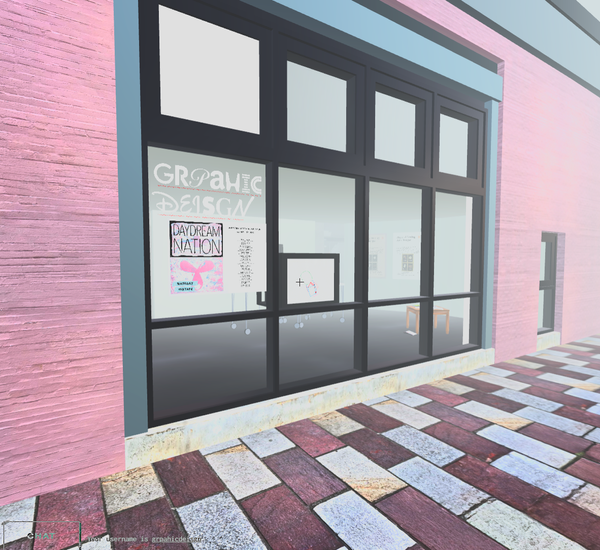email from Nathan (Item 9)
Happy new year! I switched my entire mind off for over three weeks. I began writing the below item in October but I've bumped it from every email since then because it was a mess. I need to move on to the things I should actually be studying (which I'll tell you about in the next email) so I'm writing the below to banish the hex and purge it from our conversation.
Item 9; Closing thoughts on Twitter, Posting-as-Praxis
Twitter's not out for 2024, it was already out in 2023. What is out for 2024 is talking about Twitter. The platform's declined almost completely in real relevance (anecdotally, X hasn't replaced Twitter in the lexicon simply because we're not talking about the site's content anymore) and notably even journalists have finally understood that reporting on tweets is simply reporting the opinions of the relatively small subset of people who are users of X, and not equal to reporting on, as they say, the vox populi.
With this in mind, I'm gathering some closing thoughts, some little threads to pull on, about Twitter and the era of the internet it helmed which is now coming to a close. With any luck this means that we never need to talk about it again. :)
First thread: The Verge dropped a series about the death of Twitter at the end of 2023. It's a good series actually, despite (or perhaps because of) The Verge and its parent Vox historically being some of the worst offenders when it came to valorising Twitter as the mouthpiece of all of humankind. In a podcast accompanying the series, Alex Cranz offers an analogy of Twitter as going to a coffee shop, in which both your lowly self and luminaries such as Nicki Minaj and Piers Morgan have all converged:
It sounds like a cool-ass coffee shop, but we're all talking at the same volume and also there's a hundred thousand other people all talking at the same volume in the same coffee shop. And we realized, wait a minute. That's actually too much.
I wouldn't really argue with this, but I don't think it goes far enough to explain what was really wrong with twitter. The issue is not just the visible: that everybody is in the same place and shouting, it's the invisible, unsatisfiable premise behind twitter's proposal that our online voices are both democratised and exceptional. Twitter's appeal wasn't just that Nicki Minaj, Tucker Carlson and Piers Morgan were talking to each other, it was that you the common user could join them; Twitter proposed to elevate your status to the exceptional. Unfortunately this necessarily also involved elevating everybody else's status, making all of our involvement feel a bit unexceptional. Much like the paradoxical incentivisation of late consumer capitalism, the carrot of egalitarian access to something is propelled forward by the stick of things delineated as worthless if they're egalitarian.
So we got blue-tick verification and algorithm-driven feeds to help demarcate the exceptional, chased by algorithmic incentivisation to feel like you're joining democratised conversation, and round and round it went trying to satisfy the eternally unsatisfiable premise. In the end, the only way to sustain (and compensate) your voice on Twitter was to transition to membership of the established commentariat, something that the Verge writers note with some pride that they and their peers did, converting their online followings into employment at new- and legacy-media organisations.
A second thread: It's important to certify for the post-social-media posterity that the most frustrating elements of Twitter and similar platforms were UX pathways purposely engineered to lock their users in cyclically frustrating pathways, which always incentivised and rarely rewarded. Complementing the unsatisfiable premise was an unhinged descent, where algorithm would focus attention and audience toward a topic, narrowing engagement towards extremes and pushing content ever further and deeper into what they called the rabbit hole, a well-documented phenomenon.
A third thread, which takes the first two threads and intertwines all into a short piece of string: The most insidious results of the premise and the descent are realised by Twitter and similar platforms so successfully misrepresenting context. My suspicion is that context, rather than content, is the hinge along which platforms' powers rotate. It is one thing to provide a soapbox to a user, and it is another thing altogether to simulate a roaring crowd cheering them on while they preach. The 2021 US Capitol rioters might have looked absurd in the hours and days following their attempt at insurrection, as you were inevitably distracted by the content of fascist placards, trump tweets and wolf costumes and might disregard their motivations and behaviours as simply maniacal. Yet understanding the context the rioters existed within (and how it differs from your own) offers a sympathetic rationality that's otherwise too easily missed: many rioters likely held an honest belief that they (and their Twitter feed) represented the vox populi of the US, that this was their Beer Hall Putsch, the spark of the revolution, that this is what everybody is thinking.
Of course a year from now that may well be reality in the USA, but three years ago on 7th January the crowds drifted from Washington DC, and the established political machine whirred on, rattled but largely undeterred. The march on the Capitol was significant mainly of its participants' specific understanding of social reality, a perception not yet shared by their compatriots but formulated by the engineered context provided to them through their particular corner of the internet. The power of a platform like Twitter is not in the (rather pedestrian) act of showing someone a controversial viewpoint, but in its incredible ability to alter the context of that viewpoint.
In semiotic aesthetic theory, we might say that Twitter did not directly alter the content it hosted, but it changed how and why it was seen, and thus altered its sign value, or its aura. So we know that bolstering a manifesto by worldbuilding around it isn't new, nor is it exclusive to social media. From We are the 99% to In our thousands in our millions to Where we go one we go all, we might try to position a thesis as important, central, crucial, immediate and popular. Twitter deigned to worldbuild a context for each of us, in which we might feel a democratised sense of importance, centrality, crucialness, immediacy and popularity, even if what we were posting was niche or horrendous.
Sharply yanking on the short string of intertwined threads and ruining your clothes: Maybe these places (Twitter, Instagram, TikTok, et al.) are terrible platforms for the things they purport to catalyse: the distribution of information, the democratisation of voices. They're so poor that if you wanted to create a paradigm which would surreptitiously marginalise voices and restrict information spread, this is roughly how you'd design it. As such I feel sceptical towards our use of these platforms for anything other than the lighthearted or inane; it's difficult to see a version of their use which doesn't consent to the platforms building false contexts for and around us, and which doesn't constitute sponsorship of the platforms themselves and their governance of our conversation.
The thrust of this email is that I'd like us to be cautious when we're implored to engage in the dubious process of posting-as-praxis. When we create content, we also create context, and when we create contexts for platforms that we don't own and don't control then we voluntarily give up personal and collective agency. Or in the words of Audre Lorde, What does it mean when the tools of a racist patriarchy are used to examine the fruits of that same patriarchy? It means that only the most narrow perimeters of change are possible and allowable.


